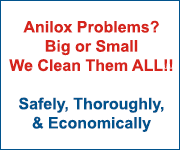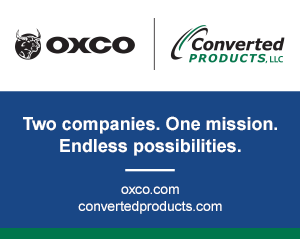Solid-waste proposals still considerable at state level.
- Published: April 01, 1995, By Zuck, Robert A.
Solid-waste legislative proposals at the state level targeting packaging issues decreased only slightly in 1994, according to Single Service News, the newsletter of the Foodservice & Packaging Institute Inc. (FPI), Arlington, VA.
"Considering that nine state legislatures don't meet in even-numbered years, the decrease isn't at all significant," according to the FPI, the trade association for the single-use, food-service-products industry.
In 1994, FPI monitored 186 state solid-waste proposals, of which 18 were enacted into law. The number of proposals monitored in 1993 was 204, of which 26 were enacted into law.
The FPI said there appears to be a shift in the focus of the legislative proposals. There were no rates-and-dates or options bills enacted in 1994.
Postconsumer recycled-content market development and procurement preferences received most of the attention in 1994, according to the FPI. Packaging taxes and fees present the most serious threats. Fig. 1 details the 1994 subject matter of state legislative activity on solid-waste issues.
Of the three states - California, Oregon and Wisconsin - with rates-and-dates statutes, FPI was successful in having food-service products exempted from California's law in 1993. FPI is continuing its attempt to change the law in Oregon. In Wisconsin, the Governor's Council on Recycling has recommended the ban on polystyrene packaging be repealed.
For more information about the FPIs legislative efforts and tracking system, contact Maria Donahue or Peter Eberle at 703/527-7505.
Plastic-Bag Recycling - A survey by the Plastic Bag Association (PBA), Pittsburgh, PA, has found consumers are quickly catching on to the do's and don'ts of plastic-bag recycling.
PBAs survey of its national 200-member Consumer Advisory Board found:
* A total of 70% of respondents recycled their plastic bags regularly.
* Half are aware self-service produce bags, dry-cleaning bags and newspaper bags can be recycled with plastic grocery bags.
* A total of 92% recognize snack-food packages as incompatible with the plastic-bag recycling process. The survey was designed to measure consumers' knowledge of clean-stream recycling practices that minimize contamination in plastic-bag recycling programs.
"Well-informed consumers are essential to the success of plastic-bag recycling programs," Ron Schmeider, PBA president, said. "Efforts to minimize recycling-stream contamination must begin at the consumer level."
While applauding the growth in consumer understanding, Schmeider said more education is needed to reduce plastic-bag recycling contamination, in part as a result of such consumer perceptions as:
* Nearly half the survey respondents believe paper receipts don't contaminate the plastic-bag recycling process.
* A total of 52% believe they can recycle plastic food wrap with plastic bags.
* A third think contamination is minimized by recycling all types of plastic bags together.
Popularity Growing - Recycling continues to be the leading environmental activity of choice among American consumers, according to a study recently conducted by the Council on Packaging in the Environment (COPE), Washington, DC.
The study's key findings show that 56% of all consumers recycle very often, up from 52% of respondents in a study done in March 1994.
The study showed that environmental issues now rank last among a list of common priorities and problems facing the nation. When asked to rank the most important problems facing the country, 29% said crime and drugs were most important, 11% said jobs and 5% said health care. Only 1% said the environment was the most important problem currently facing the nation.
Even though the survey indicated the environment isn't a top priority among consumers' concerns, they're still conscious about it in their purchasing concerns. According to the survey:
* A total of 70% of all respondents prefer recyclable packaging in the products they buy followed by packaging with recycled content.
* Among respondents who recycle very, somewhat or not very often, half (51%) use curbside recycling and 37% drop off at a recycling center.
* Two-thirds of respondents (66%) report their community has a curbside recycling program. Among these respondents, 62% report their curbside program is voluntary.
The COPE research also addressed the advance-disposal fees (ADFs) in Florida, a revenue mechanism in effect there since October 1993 to provide funding for environmental programs. The statute requires a one-cent per unit tax, or fee, for products whose packages aren't recycled at certain rates within the state or whose recycled content doesn't meet certain minimum levels. The tax increased to two cents per unit on Jan. 1. According to the research:
* Few (17%) have heard of the ADF when described generically - a tax "on products whose packages or containers aren't being recycled enough." Residents of the South (22%) and college graduates (24%) are more likely to have heard of the tax.
* A total of 76% of respondents believe consumers, not manufacturers or retail stores, pay this tax.
* A strong majority oppose the tax, with 39% of all respondents opposing it strongly and 19% opposing it somewhat.
* Confusion exists over what an ADF pays for - 40% said it pays for all types of government programs; 30% said it pays for environmental programs, in-eluding recycling; 19% think the main reason for the tax is to pay for recycling programs only.
* Increasing opposition to the tax was seen when respondents were told the tax would be used for all types of government programs - not just for recycling and environmental programs. In fact, 66% of non-Florida residents strongly opposed the tax when told this information.
* Florida residents seemed confused about the amount of tax they pay per item. Only one in four (26%) thought the tax was one cent. The majority either didn't know how much tax consumers pay per item (32%), or they answered incorrectly (39%).
* When told the tax is one cent per item, a solid majority (60%) would vote to continue the tax if they had to vote tomorrow. Told the tax doubled on Jan. 1, 57% said they would vote to repeal it.
FPA Winner - The Tide and Cheer refill bags produced by Paramount Packaging Corp., Chalfont, PA, won the Flexible Packaging Association's third annual Green Globe Award for environmental achievement.
The award was announced at the FPA's recent annual meeting in Naples, FL. The package is shown on page 47 of this issue in the story announcing the FPAs Top Packaging Awards contest winners.












